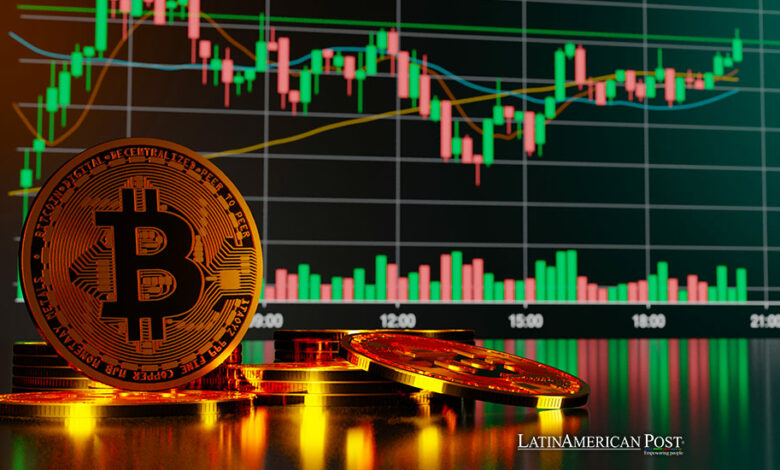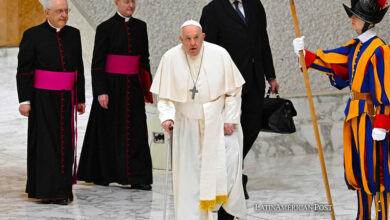Venezuela’s Shift to Cryptocurrency Amid Sanctions Draws Concerns

As Venezuela pivots to cryptocurrency for oil transactions following renewed U.S. sanctions, experts call for increased international regulatory scrutiny to prevent potential misuse and money laundering.
As Venezuela faces tightening U.S. sanctions, the South American nation’s state oil company, PDVSA, is reportedly ramping up its use of cryptocurrencies for crude and fuel exports. This strategic pivot, expected to escalate following the U.S. directive to wind down oil dealings by May 31, poses significant challenges for regulatory bodies and law enforcement worldwide.
Navigating Venezuela’s Cryptocurrency Transition
The transition to digital currencies such as Tether, used by PDVSA, marks a critical shift in how Venezuela engages with the global financial system. While the specifics of Washington’s stance on these transactions starting June are still unclear, the implications of this move are stirring considerable debate among financial security experts and opposition politicians alike.
On Monday, Venezuelan opposition politician Leopoldo Lopez and financial crime expert Kristofer Doucette detailed their concerns in a report. They highlighted the potential for the Venezuelan government, under President Nicolas Maduro, to exploit cryptocurrencies to move illicit proceeds internationally, circumventing traditional financial scrutiny.
The report, presented during a conference at the Wilson Center in Washington, underscores the urgent need for robust structures to combat this new form of money laundering. “As digital transaction technology rapidly evolves and adoption increases in regions like Latin America and Africa, regulatory frameworks struggle to keep pace,” Doucette stated. He is a national security leader at Chainalysis, a New York-based firm that provides research and software to various entities to ensure the safety of cryptocurrency transactions.
The Double-Edged Sword of Cryptocurrencies
The use of cryptocurrencies in Venezuela is a double-edged sword. On one hand, it represents a technological advancement that could offer economic relief and accessibility for a population essentially cut off from the traditional banking system. On the other, it presents an opportunity for corrupt regimes to further entrench their power by hiding financial activities from international oversight.
This concern is not unfounded. Venezuela has been in a prolonged economic crisis, exacerbated by existing sanctions and mismanagement, leading to widespread poverty and inflation. Cryptocurrencies could alleviate some economic pressures by facilitating smoother international transactions. However, they could enable the government to funnel funds undetected without stringent oversight.
During the conference, Sigal Mandelker, a former U.S. Treasury Department official and lawyer, emphasized that the Biden administration is focused on enhancing cryptocurrency regulations. “The U.S. is pushing for greater international cooperation and supervision to keep up with technological advancements in financial transactions,” she explained.
Financial experts echo the call for increased regulation, seeing the potential for cryptocurrencies to dramatically alter the landscape of global finance. They advocate for an international regulatory approach that matches digital currencies’ decentralized and borderless nature. This approach would require national efforts and a coordinated global strategy to monitor and control digital financial flows effectively.
With its varied approach to cryptocurrency adoption and regulation, Latin America serves as a critical region for observing these dynamics. While some countries in the area have embraced technology to boost economic inclusivity, others view it with skepticism due to potential risks and abuses.
The Venezuelan case could set a precedent for how nations under economic sanctions might circumvent monetary barriers, posing new challenges for international financial systems and law enforcement. It also tests the resolve of global institutions to adapt regulatory frameworks to keep pace with technological innovations that have far-reaching implications.
The Need for Collaboration
As the situation unfolds, it will be crucial for international bodies, national governments, and the global financial community to collaborate closely. They must develop mechanisms that harness the benefits of cryptocurrencies for economic development and financial inclusion and guard against their use in undermining global economic stability and security.
Also read: Advancing Agri-Tech: Venezuela’s Strategic Seed Conservation Initiative
Venezuela’s move towards cryptocurrencies amidst sanctions highlights broader issues concerning the use of digital currencies in global finance, especially by states facing international scrutiny. It underscores the need for a balanced approach that fosters innovation while ensuring robust safeguards to protect the international financial system from abuse and manipulation.





